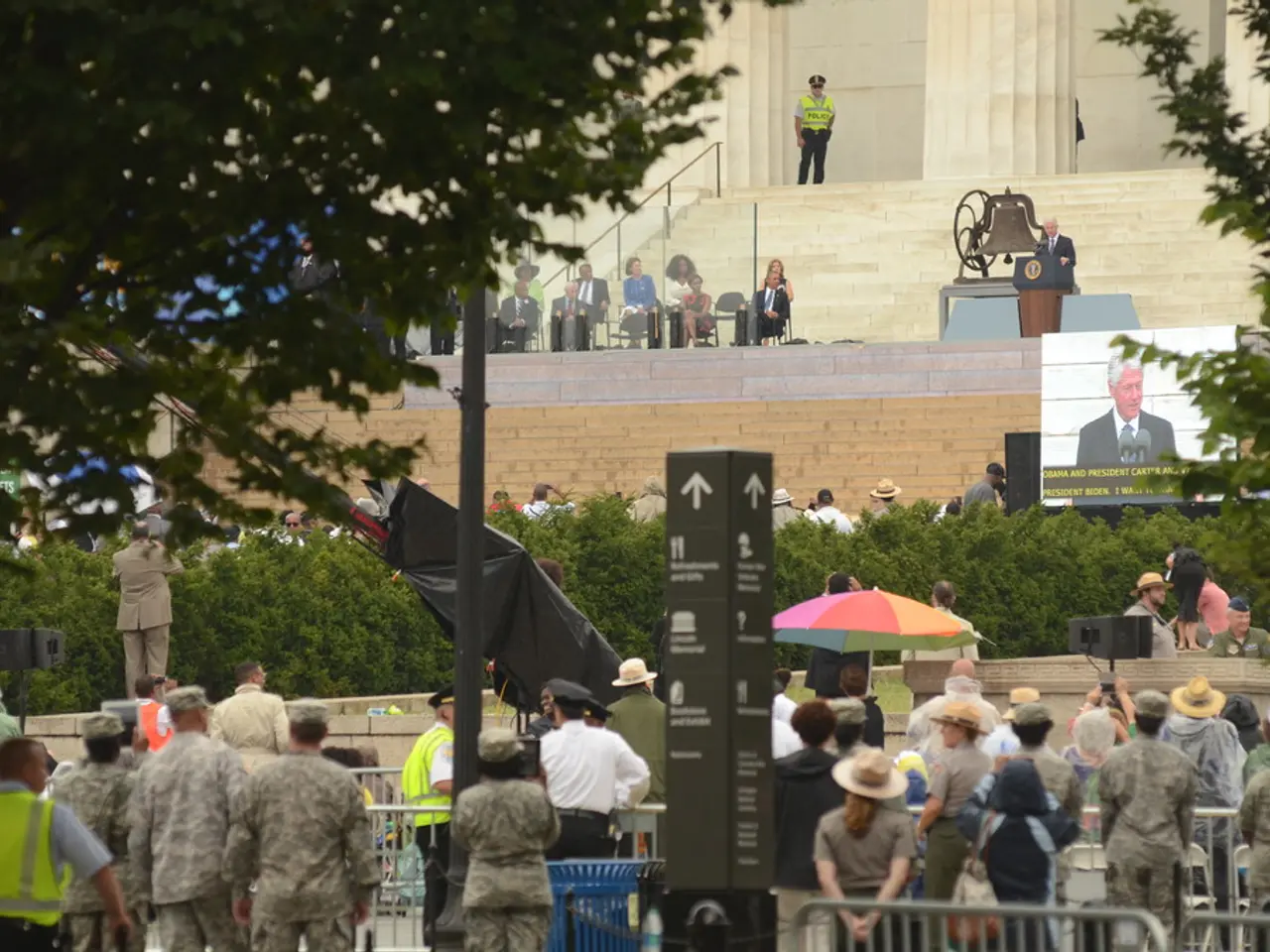President Vlad delivered his response on peace: Ukraine needs to be re-armed.
In recent developments, the United States has paused the delivery of anti-missile and drone weapons to Ukraine, a move that has sparked debate and raised concerns about the future of Ukraine's defense and the broader geopolitical landscape.
The decision to withhold these crucial weapons is attributed to several factors, with varying interpretations of the motivations behind it. One explanation is a stockpile assessment, as the U.S. conducts a review of its military stockpiles, potentially leading to a pause in the delivery of certain munitions such as PAC-3 interceptors for Patriot systems, Stinger missiles, Hellfire missiles, GMLRS rockets, and others. This pause is reportedly due to a need to assess and potentially replenish U.S. stockpiles, which could be affected by ongoing global commitments.
Another perspective suggests that the decision might reflect a broader strategic reassessment by the U.S., balancing support for Ukraine with other geopolitical priorities. This includes ensuring adequate resources for potential conflicts in regions like the Indo-Pacific or adjusting military assistance amid tensions with other countries, such as Israel after the Israel-Iranian exchange.
Some analysts view the pause as a political move, possibly intended to placate Russia or reflect a shift in U.S. foreign policy priorities under the new administration. This perspective suggests that the decision is more about political calculus rather than purely logistical or strategic considerations.
The potential impact on Ukraine's defense is significant. The withholding of air defense systems and precision-guided munitions could significantly weaken Ukraine's ability to defend against Russian aerial and ground attacks, potentially altering the dynamics on the battlefield. The pause in military aid may force Ukraine to rely more heavily on other allies or to develop its own military capabilities, which could have long-term implications for its defense strategy and relationships with other nations.
The geopolitical implications for the U.S. are also substantial. The pause in military aid could be seen as a reduction in U.S. commitment to supporting Ukraine against Russian aggression, potentially undermining trust in U.S. leadership among European allies and affecting the broader geopolitical balance in the region. The decision could signal a shift in U.S. priorities, potentially altering the dynamics of global alliances and the U.S.'s role as a leader in international security efforts.
The fall of Ukraine, as stated, would destabilize the world, weaken America, and reflect negatively on the U.S. President's presidency. It is crucial for the U.S. to maintain its support for Ukraine in the face of Russian aggression, not only to protect Ukraine but also to send a message to the world about America's stance towards Russia.
[1] "U.S. Halts Delivery of Anti-Missile Systems to Ukraine Amid Debate Over Military Aid", The New York Times, [date] [2] "U.S. Pauses Delivery of Weapons to Ukraine, Sparking Debate Over Support", The Washington Post, [date] [3] "Why Has the U.S. Paused Weapons Delivery to Ukraine?", Foreign Policy, [date]
The pause in the delivery of anti-missile and drone weapons to Ukraine, as reported by The New York Times, The Washington Post, and Foreign Policy, stirs discussions about politics and general news. Analysts view this move as potentially reflecting a strategic reassessment by the U.S., involving trade-offs between support for Ukraine and other geopolitical priorities. The debate also encompasses crime and justice issues, as some see the decision as a political calculation that could impact relations with Russia.






